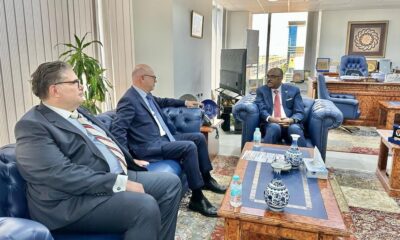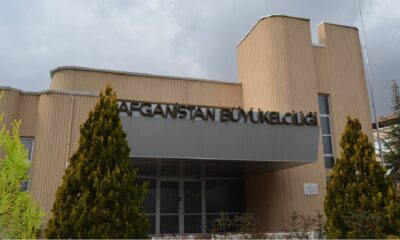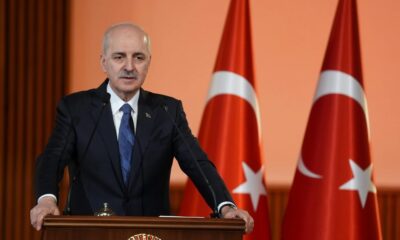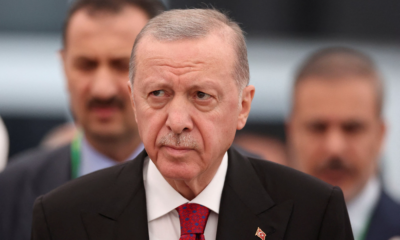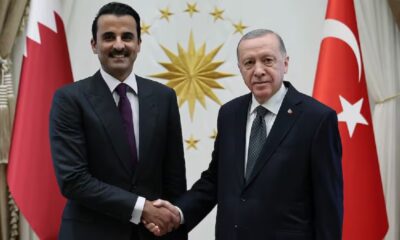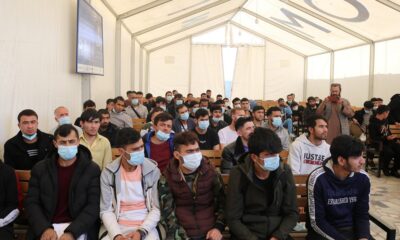ARCS official in Turkey to seek humanitarian aid for flood affected Afghans
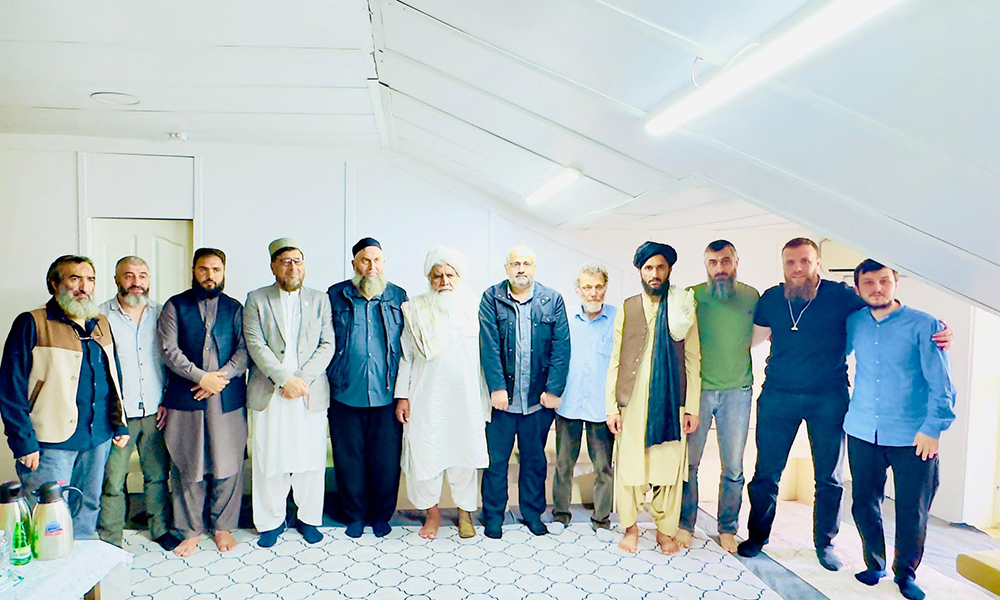
The Afghan Red Crescent Society (ARCS) said on X the organization’s deputy president, Nooruddin Turabi and his delegation, met on Monday with the heads of 17 humanitarian and charitable organizations in Istanbul, Turkey.
These 17 charitable institutions, which work under the umbrella of a union, were provided with comprehensive information regarding the economic situation and problems of Afghans by Turabi.
“Besides appreciating the humanitarian activities of these organizations, I requested them to boost their assistance with the vulnerable and affected citizens by recent floods in Afghanistan,” the organization said in its post on X.
According to ARCS during this meeting union officials assured Turabi of their support.
On 10 and 11 May, heavy rainfall and flash floods struck northeastern Afghanistan, affecting 21 districts across Badakhshan (5), Baghlan (10), and Takhar (6) provinces.
To date, reports suggest that 347 people are confirmed killed and 1,651 injured.
UNICEF reported this week that approximately 7,800 homes were either destroyed or damaged, leaving over 5,000 families displaced.
In addition to damaged or destroyed roads, bridges, health facilities and public schools, agricultural land and livestock were also lost.
Between 16 and 17 May 2024, Ghor province experienced heavy rains and flash floods that affected 10 districts, with Murghab being the most affected. Reports suggest that 40 people were killed, including 10 children; 20 people are missing and 49 are injured.
Preliminary reports indicate that over 410 families’ homes were destroyed or partially damaged, 27 health and nutrition facilities were destroyed or partially damaged, and 62 schools severely damaged.
On 17 May, Faryab province was also affected by flash flooding impacting 9 districts. Preliminary reports suggest that 62 people were killed and 18 people were injured. In addition, 1,890 houses were damaged or destroyed, and three health facilities and 23 schools were impacted.

Saar
Saar: China’s military drills around Taiwan discussed
World
Israel kills Hezbollah official in deadly Beirut airstrike

An Israeli airstrike killed four people including a Hezbollah official in Beirut’s southern suburbs on Tuesday, a Lebanese security source said, further testing a shaky ceasefire between Israel and Iran-backed Hezbollah.
The Israeli military said the official – Hassan Bdeir – was a member of a Hezbollah unit and Iran’s Quds Force, and he had assisted the Palestinian group Hamas in planning a “significant and imminent terror attack against Israeli civilians,” Reuters reported.
The Lebanese security source said the target was a Hezbollah figure whose responsibilities included the Palestinian file. The Lebanese health ministry said the strike killed four people – including a woman – and wounded seven others.
It marked Israel’s second airstrike in the Hezbollah-controlled suburb of Beirut in five days, adding to strains on the U.S.-brokered ceasefire that ended last year’s devastating conflict.
The attacks on Beirut’s southern suburbs have resumed at a time of broader escalation in the region, with Israel having restarted Gaza strikes after a two-month truce and the United States hitting the Iran-aligned Houthis of Yemen in a bid to get them to stop attacking Red Sea shipping.
Hezbollah lawmaker Ibrahim Moussawi said the Israeli attack amounted to “a major and severe aggression that has escalated the situation to an entirely different level”.
Speaking in a televised statement after visiting the building that was struck, he called on the Lebanese state to “activate the highest level of diplomacy to find solutions”.
Israeli Foreign Minister Gideon Saar said the eliminated Hezbollah operative posed “a real and immediate threat”. “We expect Lebanon to take action to uproot terrorist organizations acting within its borders against Israel,” he said.
Israel dealt severe blows to Hezbollah in the war, killing thousands of its fighters, destroying much of it arsenal and eliminating its top leadership including Hassan Nasrallah.
Hezbollah has denied any role in recent rocket attacks from Lebanon towards Israel, including one that prompted Israel to carry out an airstrike on the southern suburbs last Friday.
Tuesday’s strike in the early hours appeared to have damaged the upper three floors of a building, a Reuters reporter at the scene said, with the balconies of those floors blown out.
The glass on the floors below was intact, indicating a targeted strike. Ambulances were at the scene as families fled to other parts of Beirut.
There was no advance warning, in contrast to the attack on Friday when the Israeli military announced which building it intended to hit and ordered residents to leave the area.
Lebanese President Joseph Aoun condemned the latest airstrike, calling it a “dangerous warning” that signals premeditated intentions against Lebanon, which would intensify diplomatic outreach and mobilise international allies.
Lebanese Prime Minister Nawaf Salam said the strike was a flagrant breach of a U.N. Security Council Resolution upon which the ceasefire was based, and the ceasefire arrangement.
U.S. BACKS ISRAEL
The ceasefire agreement demanded that southern Lebanon be free of Hezbollah fighters and weapons, that Lebanese troops deploy into the area, and that Israeli troops withdraw.
But each side accuses the other of failing to implement the terms fully. Israel says Hezbollah still has infrastructure in the south, while Lebanon and Hezbollah say Israel is occupying Lebanese soil by not withdrawing from five hilltop positions.
The U.S. State Department said that Israel was defending itself from rocket attacks that came from Lebanon and that Washington blamed “terrorists” for the resumption of hostilities.
“Hostilities have resumed because terrorists launched rockets into Israel from Lebanon,” a State Department spokesperson said in an email, responding to a question from Reuters seeking reaction to Tuesday’s airstrike. Washington supported Israel’s response, the spokesperson said.
The Israel-Hezbollah conflict was ignited when Hezbollah opened fire in support of Hamas at the start of the Gaza war. It escalated in September when Israel went on the offensive, declaring the aim of securing the return home of tens of thousands of people evacuated from homes in the north.
The war uprooted more than a million people and killed at least 3,768 people in Lebanon, according to a Lebanese health ministry toll from November. Dozens more have been reported killed by Israeli fire since the ceasefire.
Lebanon’s figures do not distinguish between civilians and fighters.
During the war, Hezbollah strikes killed 45 civilians in northern Israel and the Israeli-occupied Golan Heights. At least 73 Israeli soldiers were killed in northern Israel, the Golan Heights, and in combat in southern Lebanon, according to Israeli authorities.
Latest News
Afghanistan’s reconstruction is in the interest of EU: Uzbek president
Mirziyoyev said that many who initially disagreed with Uzbekistan’s policy on Afghanistan are now compelled to recognize its correctness and inevitability.

Stabilising the situation in Afghanistan and its reconstruction are in the common interests of the Central Asian countries and the European Union, Uzbekistan President Shavkat Mirziyoyev has said.
Speaking in an interview with Euronews released Tuesday, Mirziyoyev mentioned that his country’s approach to Afghanistan has always been pragmatic and strategically oriented toward the long term.
“We have never isolated or turned away from our neighbour. We have always believed that Afghanistan’s development is impossible without constructive engagement with neighbouring countries, including Uzbekistan as its closest and most important partner,” he said.
Mirziyoyev said that many who initially disagreed with Uzbekistan’s policy on Afghanistan are now compelled to recognize its correctness and inevitability.
The Uzbek leader also criticized the former regime in Afghanistan for its inability to establish full control over the country’s territory, its unwillingness to engage in dialogue with the opposition, its lack of intent to form an inclusive government. He added that widespread corruption permeated all levels of the former administration.
“The current leadership has managed to stabilise the situation in Afghanistan and redirect its resources toward infrastructure development, including airports, domestic railway networks, and water and energy facilities, as well as toward reducing opium cultivation,” he said.
Mirziyoyev said that Afghanistan should be viewed through “the lens of emerging strategic opportunities.”
“It is critically important to integrate Afghanistan into global economic processes, including through the implementation of infrastructure projects on its territory,” he said.
Expressing readiness to jointly work with the European Union on Afghanistan, he said that the primary task at this stage is to continue to providing assistance in the field of education.
“I am convinced that stabilising the situation in Afghanistan and its reconstruction are in the common interests of the Central Asian countries and the European Union,” he said.
-

 Business5 days ago
Business5 days ago36 mining contracts inked over the past year: Mines ministry
-
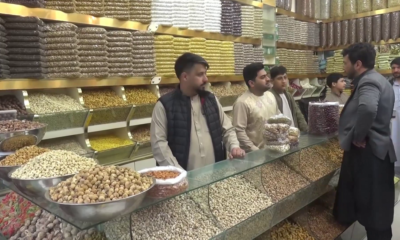
 Latest News4 days ago
Latest News4 days agoDried fruit market in Herat booms ahead of Eid-al-Fitr
-
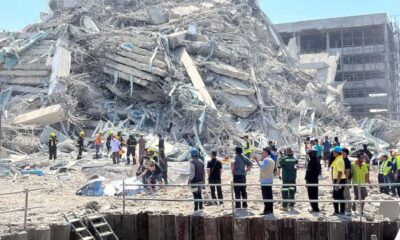
 Regional5 days ago
Regional5 days agoPowerful quake in Southeast Asia kills several, Myanmar declares state of emergency
-

 Latest News5 days ago
Latest News5 days agoUS may ask for military equipment left behind in Afghanistan: Trump
-

 International Sports5 days ago
International Sports5 days agoLucknow’s six-hitting machine Pooran justifies top order slot
-

 Latest News4 days ago
Latest News4 days agoMore than 70,000 Afghans returned home in third week of March: IOM
-

 Health4 days ago
Health4 days agoGlobal organizations warn of health crisis due to aid cuts in Afghanistan
-

 International Sports4 days ago
International Sports4 days agoChennai grapple with IPL home truth after Bengaluru defeat

